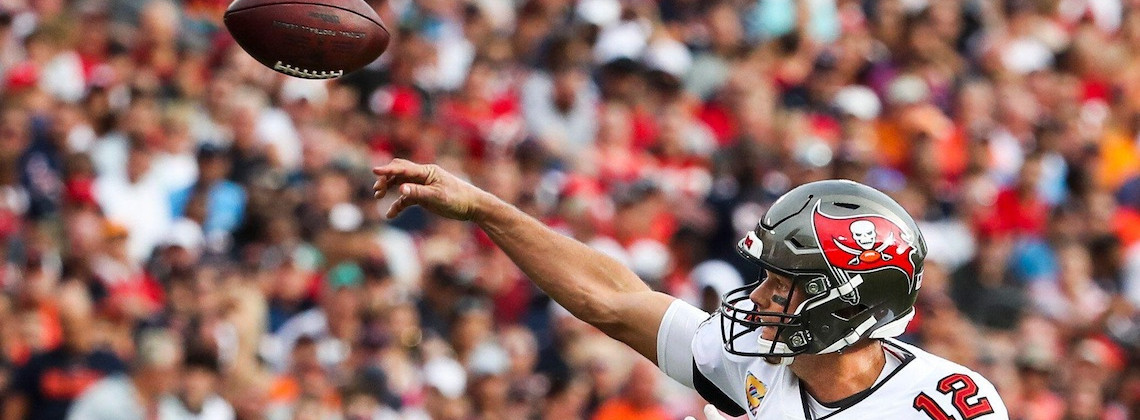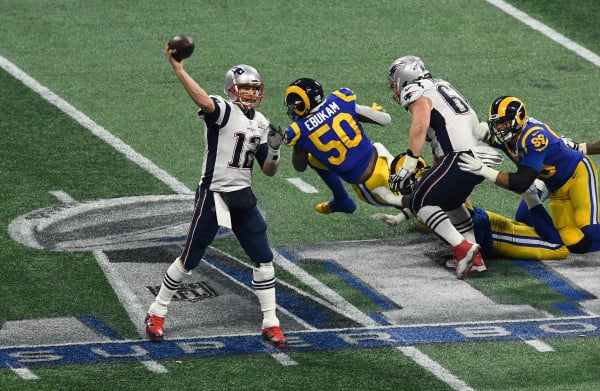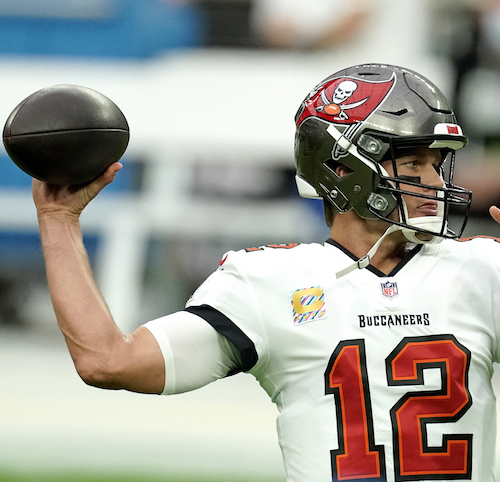
Does Tom Brady’s retirement bring the pocket-passing era to an end?
Tom Collins
4 February 2022
‘If I have something to say, I want it to be meaningful.’ Those were the words of Tom Brady in a 2012 interview with Jimmy Tarina. Plenty of water has passed under the bridge since, but the 44-year-old quarterback has never contradicted his mantra and he surprisingly announced his retirement from the NFL earlier this week.
Unlike most athletes, you don’t have to support the Tampa Bay Buccaneers, New England Patriots or Michigan, or even vaguely follow the NFL, to have heard his name. Tom Brady is a global product - ask someone a random American football question and they will likely guess his name as the answer - and many believe that he is the best to have ever played the sport.
Seven Super Bowl titles, five Super Bowl MVPs and three league MVPs just scratch the surface of Brady’s achievements in a blockbuster professional career that began when he was drafted by the Patriots as the 199th overall pick in the 2000 NFL Draft.
Brady was largely considered an afterthought in a draft that supposedly boasted a weak quarterback class. Scouts don’t always get it right and the stringent focus on combine statistics has allowed several future Hall Of Famers to drop numerous places down the order.
In fact, Brady was expected to come off the board in the second or third round, but a leisurely 5.26sec 40-yard dash time was enough to see his value fall quicker than a stone through water. He began his rookie year as the fourth-string quarterback for the Patriots, but quickly moved up the ranks and was the back-up to Drew Bledsoe by the time the season had ended.

Bledsoe suffered an internal injury in the fourth quarter of their home opener against the Jets in the 2001 season, which allowed Brady to take control of the offence for the first time in his professional career. New York held on to win 10-3, but that short stint was the start of the Brady era. He began the next 14 regular season games and led the Patriots to victory on 11 occasions. More importantly, they went on to win the Super Bowl.
From that moment onwards, the Patriots’ love affair with Brady flourished and back-to-back Super Bowls in 2003 and 2004 changed this slow, average pocket-passing college quarterback into a worldwide sporting icon. Who knew a guy with a 5.26s dash could ever become the best athlete on a team?
A long and illustrious 19-season career with the Patriots came to an end and you could be forgiven for thinking that Brady played in each and every Super Bowl during that timespan, such was the dominance of his leadership and connection with head coach Bill Belichick in the AFC.
The game grew around Tom Brady. Players were getting stronger, faster and new rules were slowly changing the way the game was played, yet Brady consistently remained at the top.
His contract with the Patriots expired in March 2020 and plenty questioned how he would perform in a different system, but, like at every other stage in his career, he proved the doubters wrong and won Super Bowl LV with the Tampa Bay Buccaneers. Plenty thought they could retain their crown this year, but they were knocked out by the Los Angeles Rams in a thrilling 30-27 game just eight days before Brady announced his retirement.

Still obviously capable of performing at the very top, Brady exits the sport as the desire for dual-threat quarterbacks heightens. The days of Johnny Unitas, Dan Marino and Joe Montana are long gone. Even Brett Favre, Andrew Luck, Drew Brees, Peyton Manning and, most recently, Ben Roethlisberger, have hung up their cleats. Are the days of the pocket passer over?
Cincinnati Bengals’ Joe Burrow, Green Bay Packers signal-caller Aaron Rodgers and Rams leader Matt Stafford may disagree, but they could be the last of a dying breed of pocket-passers currently considered franchise quarterbacks. Speed is of the essence now, and not just from skill positions on both sides of the ball.
John Elway played way before his time between 1983 and 1998 - he remains the only quarterback in NFL history to score a rushing touchdown in four different Super Bowls - but the recent trend for dual threat quarterbacks has become immensely popular. Who wouldn’t want a read-option offence? There is no better way to move the ball down the field.
Michael Vick changed the mindset of many coaches, and the likes of Russell Wilson, Lamar Jackson and Colin Kaepernick have followed. Even Patrick Mahomes and Josh Allen - arguably the two most exciting players in football right now - boast mouth-watering speed. You won’t see a 5.26s 40-yard time from either of those two.
Perhaps the game has finally caught up with Tom Brady and maintaining his high-level of play at the age of 44 would have become difficult. But, aside from those who support the teams he has represented, Brady’s loss from the NFL will leave a huge hole. Not only will the so-called greatest of all-time not light up our screens week-to-week, but his retirement may have brought the pocket-passing era to an end.
Tom Collins
4 February 2022


